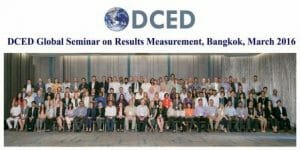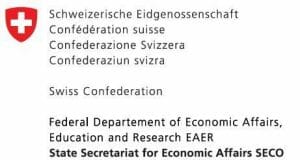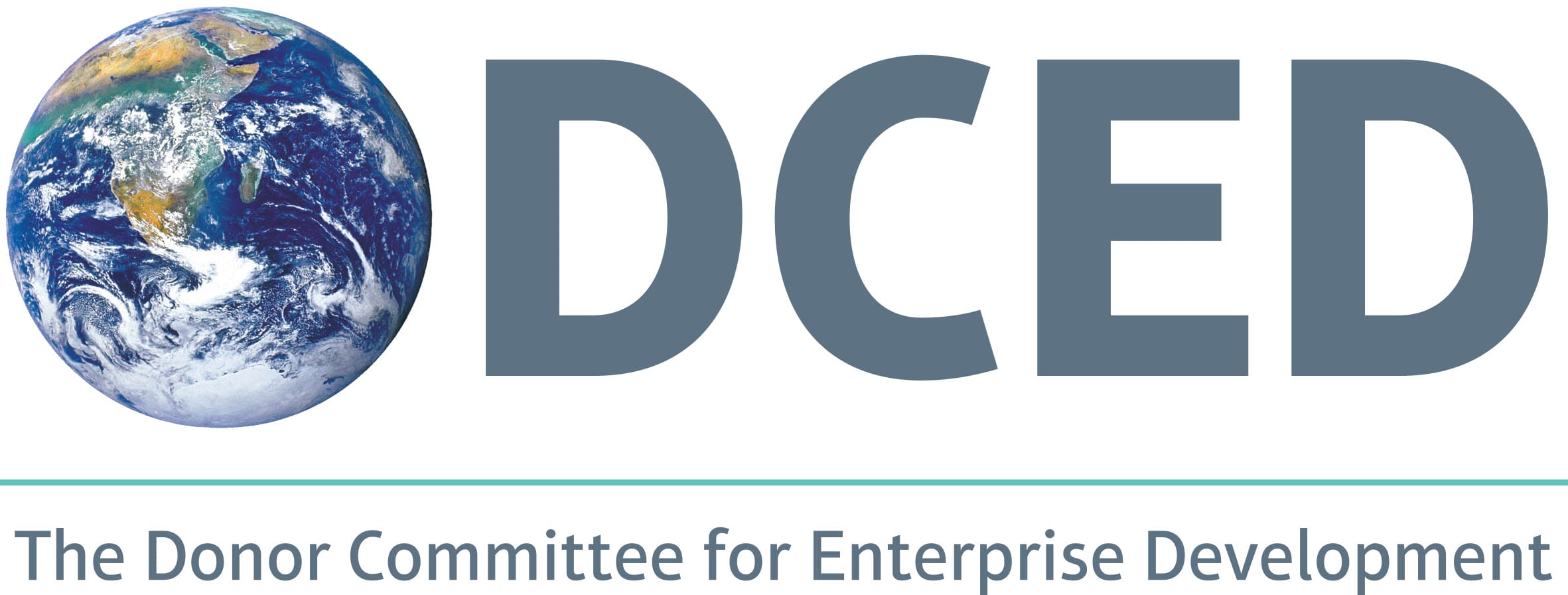 The DCED Standard for Results Measurement has gained wide acceptance as a framework for monitoring effectiveness in real time; it is now in use by many development programmes around the world. Every two years, the DCED hosts a Global Seminar to deepen understanding on selected topics of particular interest to the community. The 2016 DCED Global Seminar featured presentations and discussions on cutting-edge themes such as measuring women’s economic empowerment, assessing attribution, measuring job creation, and using results information to manage programmes. Sessions included plenaries and break-outs, with time for discussion between the 130 participants. The full agenda, presentations and relevant links are included below. A final summary report is also available.
The DCED Standard for Results Measurement has gained wide acceptance as a framework for monitoring effectiveness in real time; it is now in use by many development programmes around the world. Every two years, the DCED hosts a Global Seminar to deepen understanding on selected topics of particular interest to the community. The 2016 DCED Global Seminar featured presentations and discussions on cutting-edge themes such as measuring women’s economic empowerment, assessing attribution, measuring job creation, and using results information to manage programmes. Sessions included plenaries and break-outs, with time for discussion between the 130 participants. The full agenda, presentations and relevant links are included below. A final summary report is also available.
If you would like to access resources from previous Global Seminars on Results Measurement, please contact the DCED Secretariat.
Summary report
A brief summary report of the event can be downloaded here.
Seminar agenda, presentations and additional resources
Monday 14th March
Session 1, 08:30 – 10:00
Introductions
- Overview of the Standard, Seminar Agenda, Jim Tanburn
- DCED’s knowledge offer, Melina Heinrich-Fernandes
- Both presentations are available here.
Session 2, 10:30 – 12:00
World Café
- An opportunity for participants to meet each other
- Group photograph
Session 3, 13:30 – 15:00
Using the DCED Standard for Learning and Management
Additional resources:
- Building a Learning Culture – The Case of the Market Development Facility in Fiji, 2015.
- Practical Guidelines on implementing the DCED Standard: Managing the System for Results Measurement
Measuring Employment
- CDC’s methodology for measuring indirect employment changes, Alex MacGillivray, CDC
Additional resources:
- CDC’s Annual Review 2014, reporting aggregate job creation results
Session 4, 15:30 – 17:15
Measuring Women’s Economic Empowerment
- Measuring Gendered Impact: Outstanding Challenges and Experience in using Adam Smith International’s Guidelines, Sonia Jordan, Adam Smith International
- New research prepared for GIZ, Erin Markel, MarketShare Associates
- Integrating women’s economic empowerment into the MDF approach, Victoria Carter, Market Development Facility
- Chair: Birgit Seibel, GIZ
Additional resources:
- Adam Smith International (2016): Measuring Gendered Impact in Private Sector Development. Technical Reflections and Guidance for Programmes.
- Market Development Facility (2015): How Women contribute to and benefit from growth. Integrating Women’s Economic Empowerment into the MDF Approach.
- DCED (2014): Practical Guidelines for Measuring Results in Women’s Economic Empowerment in Private Sector Development
Tuesday 15th March
Session 1, 08:30 – 10:30
Defining attribution methodologies and applying them in practice.
- A practical framework to define appropriate attribution methodologies, Hans Posthumus and Phitcha Wanitphon
- Four case studies on assessing attribution, Zakaria Tavberidze, Sanju Joshi, Syeda Samira Saif, Belinda Boateng.
Additional resources:
- DCED (2015): Measuring Attribution: a practical framework to select appropriate attribution methods, Hans Posthumus Consulting.
- Case study of the intervention of MDF with Acelda in Timor Leste, illustrating the use of a before and after with opinion method.
- Case study of Samarth-NMDP intervention in the ginger sector in Nepal, illustrating the use of a quasi-experimental method.
- Case Study of Propcom Mai-Karfi (PM) intervention in the tractor market in Nigeria, illustrating the use of comparison groups.
- Case Study of the Alliances Lesser Caucasus Programme (ALCP) in Georgia, illustrating how a single impact assessment could assess attribution for multiple interventions.
- Practical Guidelines for Implementing the DCED Standard: Measuring Attributable Change.
Session 2, 11:00 – 12:30
Breakout Groups on Attribution
- Market Development Facility with Acelda in Timor Leste, Syeda Samira Saif
- Samarth-NDMP in the ginger sector in Nepal, Aly Miehlbradt and Sanju Joshi
- Propcom Mai-Karfi intervention in the tractor market in Nigeria, Hans Posthumus and Belinda Boateng
- The Alliances Lesser Caucasus Programme in Georgia, Phitcha Wanitphon and Zakaria Tavberidze
Session 3, 14:00 – 15:30
Participant Marketplace and Breakouts
- The Participant Marketplace offers participants the opportunity to present their work.
- FSD Africa, Kevin Munjal
- PSP4H Kenya, Ron Ashkin
- Business Call to Action, Tomohiro Nagasaki
- Katalyst Bangladesh, Fortunat Diener; Katalyst’s new framework for assessing systemic change can be downloaded here.
- Setting up a multi-country results measurement system in MDF, Fiza Salim
- Optional breakout session: Capacity Building for Results Measurement, Aly Miehlbradt
- Optional breakout session: Introduction to the DCED Standard, Nikola Babic
Session 4, 16:00 – 17:15
Tools for Assessing Systemic Change
- Applying the AAER framework to M-Shwari (FSD Kenya), David Elliott, Springfield Centre
- Tools for assessing systemic change: Overview of trials under USAID/LEO and DFID/BEAM, Tim Sparkman, MSA
- Chair: Mike Albu, BEAM Exchange
Additional resources:
- Springfield (2014): Adopt-Adapt-Expand-Respond: a framework for managing and measuring systemic change processes.
- USAID (2014): Evaluating Systems and Systemic Change for Inclusive Market Development.
- Practical Guidelines for Implementing the DCED Standard: Assessing Systemic Change.
Wednesday 16th March
Session 1, 08:30 – 10:00
Measuring better and more inclusive jobs, hosted by Matt Ripley, ILO
- The experience of Kuza (DFID/ASI) in Kenya with measuring inclusive jobs, Justin van Rhyn, Adam Smith International
- The experience of BOSS (NZAID, IRISH AID/ILO) in Timor-Leste with measuring productive employment, Annie Major
- Presentation of an indicator inventory drawn from the experience of over 20+ projects in measuring working conditions, Steve Hartrich, ILO
- All presentations can be viewed here.
Additional resources:
- ILO (2015) The BOSS Project in Timor-Leste: Thin Markets, Thick Impact?, ILO, 2015.
- Practical Guidelines on Implementing the Standard: Measuring Changes in Indicators
Session 2, 10:30 – 11:15
Using the DCED Standard for Learning and Management (cont.)
- MRM tools for programme management – M4C’s experience, Subrata Kumar
Additional resources:
Session 3, 11:15 – 12:00
Use of the DCED Standard
- Using the Standard from start to finish in CAVAC, Peter Roggekamp
Session 4, 13:30 – 15:00
Evaluations and the DCED Standard
- New developments in evaluation of PSD programmes with Itad/BEAM, Charley Clarke, ITAD
- An evaluator’s perspective on the DCED Standard, Jim Rugh, author of the RealWorld Evaluation book
- Chair: Donna Loveridge
- Optional breakout session: Inclusive Buzziness: A practical exercise on using results for management in the honey market, Adam Kessler
Session 5, 15:30 – 17:00
Conclusions and Looking Forward
- Learning from audits to date, Phitcha Wanitphon
- Why the DCED Standard matters to us, Helen Bradbury, Alliances Lesser Caucasus Programme
- Summing up and next steps, Jim Tanburn
Additional resources:
Feedback from seminar participants
“The Seminar was very helpful and I particularly enjoyed the diversity of topics … It really sparked interesting debate from a diverse group of PSD practitioners.”
“It was a wonderful balance of information exchange, networking and building connections/relationships, and fun! Thank you!!”
“High quality, diverse speakers. Excellent!”
“It was a great opportunity to learn about the DCED Standard and see what peers are doing.”
“Good spread of tools, methodologies, frameworks, attitudes and theories.”
“It was a great opportunity to catch up with many people and get to know more about their work. I really took a lot out of it.”
Co-sponsors


